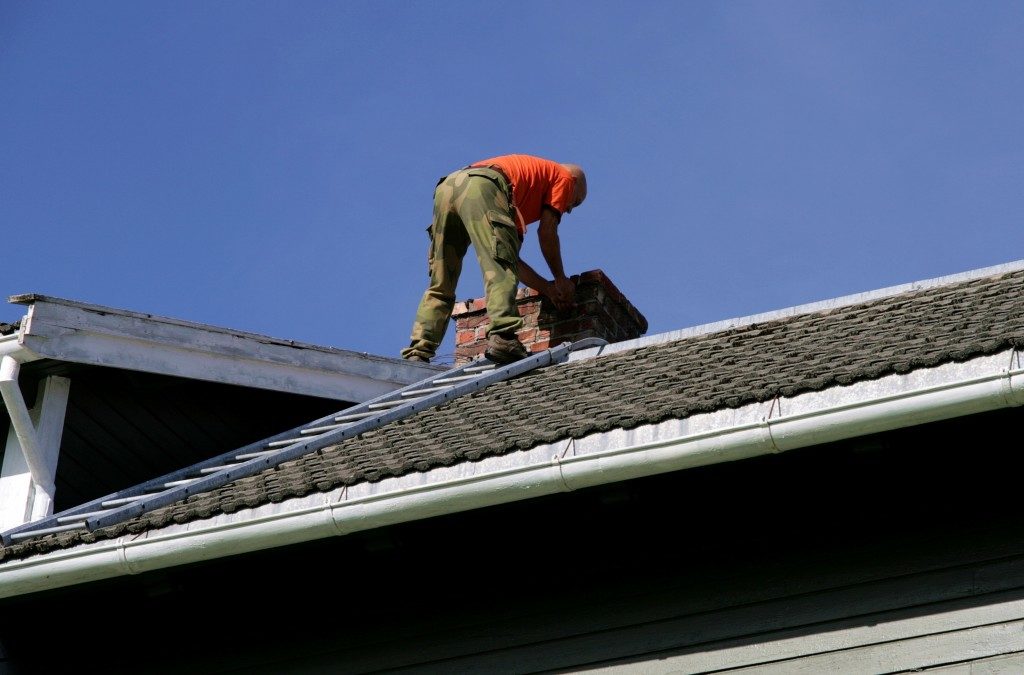Planning to get your chimney cleaned? Congratulations on taking one of the rarest maintenance steps toward preventing a fire incident. But how do you prepare your chimney for inspection and cleaning?
Below are some of the steps recommended by experts. You can also learn more about Willard Power Vac and its proven approach to chimney cleaning.
Contents
Steps to Take Before Cleaning Your Chimney
Cool the Fireplace
Chimney cleaning can be both exciting and stressful, so it’s understandable if you want to get it done as soon as possible. However, cleaning a hot or active chimney is counterproductive and unhealthy.
The first step towards cleaning your chimney is to ensure it is inactive and cool. Ensure that it’s been hours since the chimney was last used, and you can also use a thermostat to measure the chimney’s temperature before getting started.
Ideally, your chimney should have been off and unused for between 24 and 48 hours before attempting to clean it. This gives the masonry enough time to cool down.
Remove Logs from the Firebox
Important preparatory steps like removing unburned logs from the firebox should also be ticked off. Doing this ensures that you do not wet or damage the logs. It can also help you save a lot of money and stress on purchasing new logs.
Remove all Decorative Elements or Protective Barriers
With the logs out of the way, now is time to remove any fragile and non-fragile decorative elements or ornaments surrounding the fireplace. Ensure that those items are kept at a distance from the fireplace and work area to prevent damage.
You should also go the extra mile to remove any furniture, toys, or other items that may block your access to the fireplace during cleaning or require emergency attention. This is important to prevent accidents and to keep you from splattering soot and creosote across your home.
Prepare the Fireplace for Cleaning
Now that all items have been safely put away, prepare the area around your fireplace by placing drop cloths around the work area. The drop cloths should cover a significant area around your fireplace so it can collect the remnants dispersed in the air during the cleaning process.
Using drop cloths can also protect your floor and reduce the amount of cleaning required after your chimney has been scrubbed down.
Once done with cleaning, carefully pack the drop cloths, ensuring that the soot from your chimney is nicely concealed within the drop cloth.
Why Should You Sweep Your Chimney?
Sweeping your chimney has many advantages, including:
Reduced Risk of Chimney Fire
Chimney sweeps are a great way to get rid of creosote which is the leading cause of chimney and home fires. Creosote are inflammable burning deposits that accumulate within the chimney and can lead to house fires when accumulated. By cleaning your chimney, you effectively reduce the chances of fires, thus improving your finances and avoiding disasters.
Reduce CO2 and Smoke Problems
CO2 is a dangerous gas that can cause carbon monoxide poisoning. This problem is often common in homes where the chimneys are clogged with no cleaning in sight. Carbon monoxide poisoning is unhealthy, can cause lung diseases, and in many cases, leads to cancer or death.
By cleaning your chimney regularly, you can avoid such health problems for yourself and your family.
Prevents Chimney System Corrosion
The chimney system can get corroded over time, especially when layers and layers of creosote are deposited on the inside walls. The soot from the burning of wood logs is also acidic and can affect the chimney’s walls, damaging the mortar and its metal component. When left unattended, the metal component becomes corroded and weak, exposing the home to structural problems like cracks.
Improves Energy Efficiency
Sweeping your chimney is one of the best ways to keep your energy costs down, especially during the winter months when you need heating and warmth the most. With a proper chimney cleaning schedule, you can ultimately get rid of soot and creosote from within the system, detect any problems that require immediate attention, and ensure that your home retains heat and warmth for longer periods.
Address Foul Odors
The chimney has a passage leading to the outdoors. This passage is often a common space for pesky little animals like birds. In addition, the soot, dust, and dirt accumulated within the chimney can gather up and affect your indoor air quality.
By cleaning your chimney regularly, or at least once every 12 months, you can get rid of such buildups and improve your indoor air quality.

